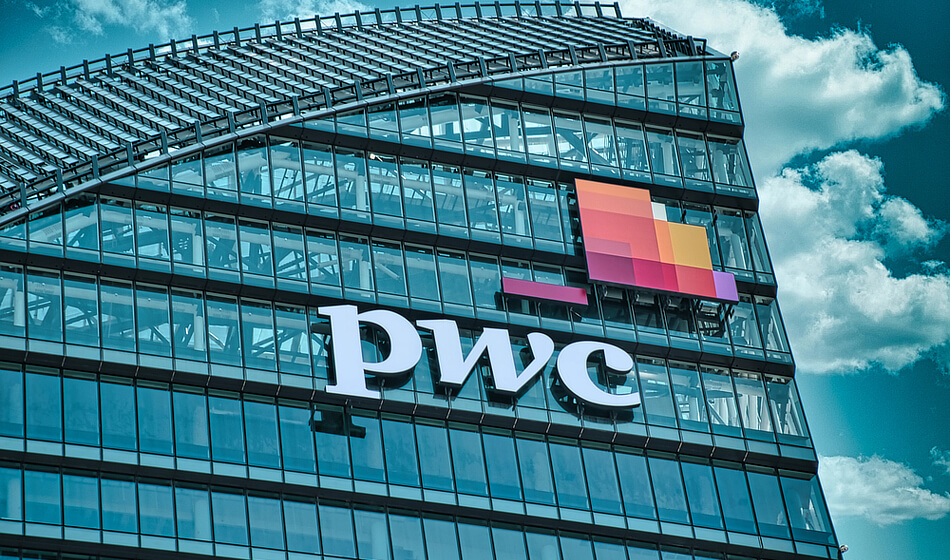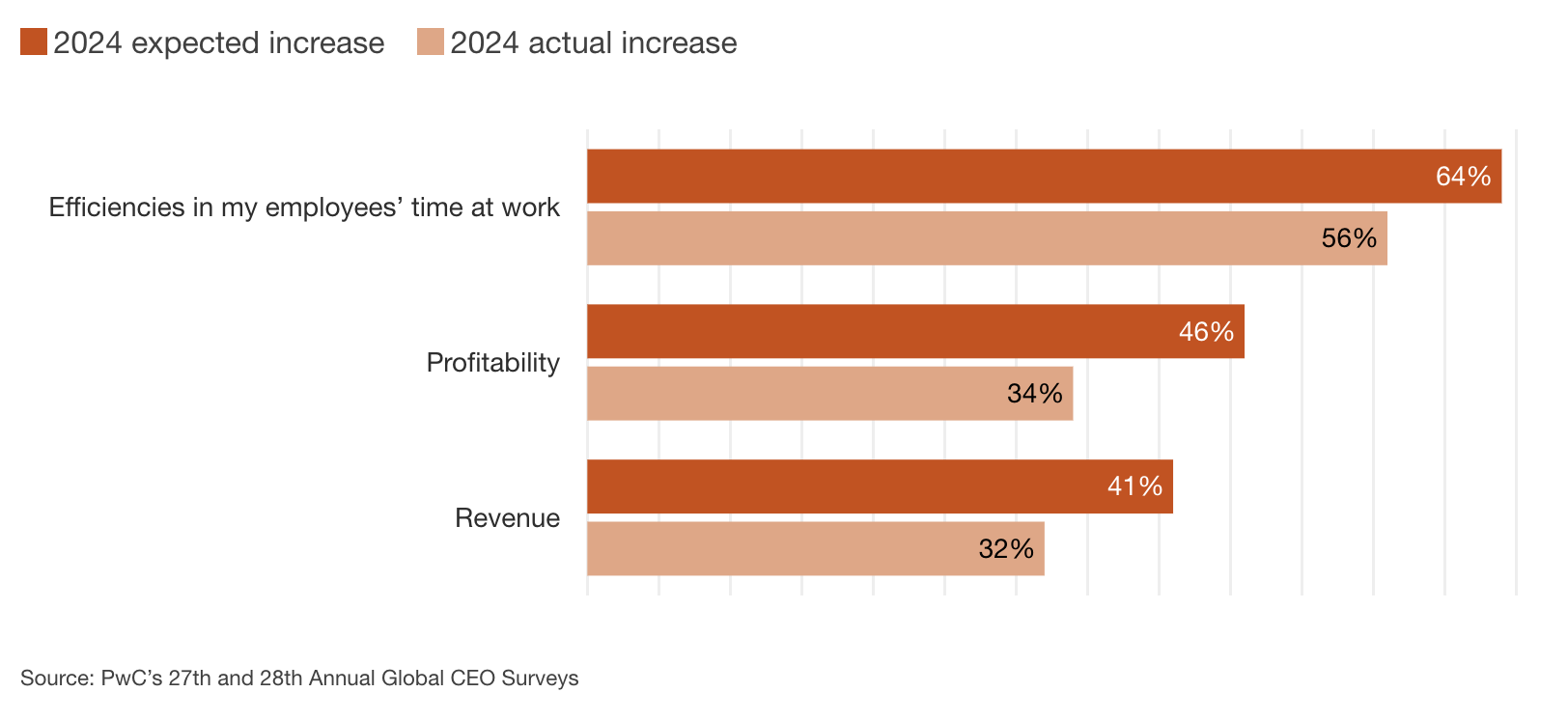What’s on the Minds of CEOs?
Every year, PwC’s Global CEO Survey gives us a unique glimpse into the minds of business leaders worldwide. The 28th edition is no exception, capturing insights from 4,701 CEOs in 109 countries. It’s like a global group therapy session, where leaders air their hopes, fears, and strategies for the future.
The survey shows that while CEOs are optimistic about growth, they’re also grappling with challenges like adopting artificial intelligence (AI), navigating climate goals, and finding time for a decent coffee break. One CEO reportedly joked that they’d made a new personal KPI: staying awake past 8 p.m.
This year’s results highlight key themes shaping global businesses, from economic optimism and technological innovation to sustainability and strategic investments. The findings also reveal a mix of cautious optimism and bold strategies, reflecting a world still recovering from disruptions while preparing for an uncertain future.
Is Growth Finally Back?
After a few turbulent years, CEOs seem to be feeling hopeful again. Nearly 60% believe global economic growth will improve over the next 12 months. That’s a significant jump from last year’s 38%. This optimism is like spotting a lighthouse in a storm for business leaders.
But what’s fueling this newfound confidence? For one, sectors like technology, healthcare, and renewable energy are thriving. CEOs in these industries are seeing opportunities for expansion and innovation. The technology sector, in particular, has benefited from the accelerated adoption of digital tools during the pandemic, which has continued to drive growth. Similarly, healthcare innovations, especially in biotech and telemedicine, have opened new doors for revenue.
Governments in key markets are also contributing. Incentives to spur investment and trade, tax breaks for innovation, and initiatives to improve infrastructure create a more favourable environment for businesses. The US Inflation Reduction Act and similar European policies have been game-changers for renewable energy and manufacturing.
This optimism isn’t universal, though. CEOs in some regions, particularly those grappling with geopolitical tensions, remain cautious. Markets affected by conflicts, trade restrictions, or unstable currencies are still navigating choppy waters. However, for the majority, it seems the worst might finally be behind us. In fact, many CEOs feel optimistic enough to plan vacations—whether they’ll take them is another story.
The Rise of Generative AI
If 2024 was the year AI entered the mainstream, 2025 is the year it became a boardroom staple. Generative AI is the talk of the town, with CEOs reporting early gains in productivity. It’s helping businesses automate repetitive tasks, generate creative content, and analyze complex data sets in ways that were unimaginable just a few years ago.
The survey reveals that over half of CEOs have integrated generative AI into at least one part of their business. Typical uses include streamlining customer service with AI chatbots, generating marketing copy, and even aiding in research and development. AI-powered tools enable companies to speed up innovation cycles, creating a competitive edge in the pharmaceuticals and consumer goods industries.
However, not everyone is seeing the promised land. While many CEOs report improved efficiency, only a smaller percentage have noticed profitability gains. This divide highlights the growing pains of adopting new technology. One leader described their first AI implementation as “like giving a Ferrari to a toddler—exciting, but a little dangerous.”
One of the questions asked about the extent of expected or actual AI growth in the CEOs company, the results were as follows.
To navigate these challenges, companies are focusing on upskilling their workforce. Training employees to work alongside AI and use it effectively has become a priority. This is especially important as ethical AI use and data privacy concerns grow. CEOs are also mindful of the need to balance automation with human creativity and judgment. The good news? CEOs aren’t worried about being replaced by AI… at least not yet. The tech is now more “assistant” than “overlord.”
A Surprise Investment Hotspot
Surprisingly, the UK has emerged as the second most important destination for global investment, trailing only the US. This is the UK’s highest ranking in the survey’s history. A remarkable 14% of CEOs identified the UK as a top investment target, compared to 30% for the US.
So, what’s driving this surge in interest? Factors like a robust technology sector, forward-thinking government policies, and a reputation for innovation play a significant role. The UK’s emphasis on green energy and digital transformation has made it an attractive investor hub. Initiatives like the UK’s Green Industrial Revolution are drawing attention from global leaders.
London’s position as a global financial hub and its access to talent from world-class universities contribute to its appeal. Despite Brexit-related challenges, the UK’s resilience and adaptability have impressed investors.
The UK is also a hotspot for Business Strategy. With companies like Intrafocus taking the lead in strategic process and strategic measurement.
Some CEOs joked about brushing up on their British etiquette, with one quipping, “I’m even practising how to say ‘queue’ instead of ‘line’” in preparation for meetings. Humour aside, this newfound interest in the UK is a positive sign for a nation that’s faced its fair share of economic uncertainty in recent years.
Climate Commitments
Climate-friendly investments are not just about doing the right thing but also delivering measurable business benefits. According to the survey, one-third of CEOs report that their sustainability initiatives have boosted revenue. Even more impressively, two-thirds say these investments have reduced costs or had no significant cost impact.
What does this look like in practice? Companies are investing in renewable energy sources, improving energy efficiency in their operations, and launching green products. For example, manufacturers are introducing electric vehicle components, and retailers are redesigning packaging to be more sustainable. These efforts are cutting costs and enhancing brand reputation among environmentally conscious consumers.
The message is clear: going green is good for business. CEOs compete to see whose company can lead the way in sustainability. One executive proudly shared that their office now boasts more solar panels than employees. This light-hearted competition underscores a serious point: sustainability is becoming a business necessity, not just a buzzword.
Investors are also paying attention. ESG (Environmental, Social, and Governance) metrics increasingly influence investment decisions. Companies that fail to act may be left behind in a rapidly changing marketplace. For CEOs, the choice is simple: invest in the planet or risk losing their competitive edge.
The Road Ahead
PwC’s 28th Global CEO Survey paints a picture of cautious optimism. Business leaders are hopeful about economic growth, excited about the potential of generative AI, and committed to driving sustainability. At the same time, they’re navigating challenges like technological integration, shifting geopolitical landscapes, and the ever-present demand for innovation. You can find the full report on the PWC website.
For CEOs, the road ahead is anything but predictable. However, the future looks promising with the right strategies and a willingness to adapt. One leader said, “It’s not about weathering the storm; it’s about learning to dance in the rain.” And if nothing else, at least they’ll have AI to help them choreograph.




